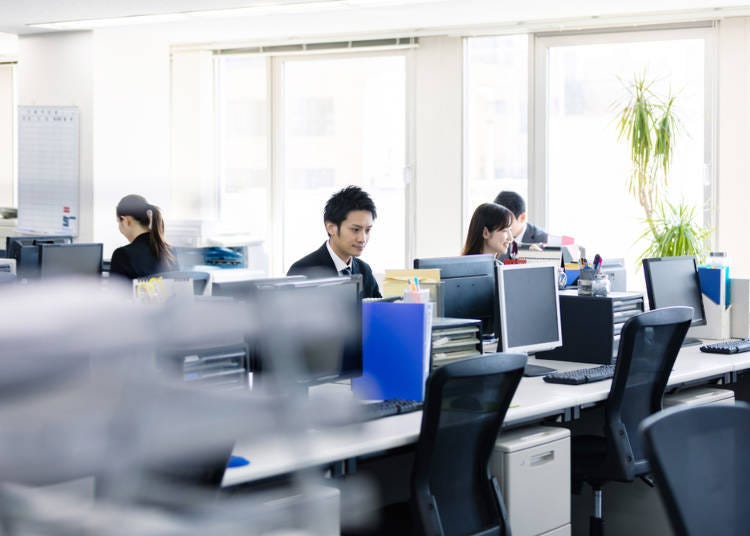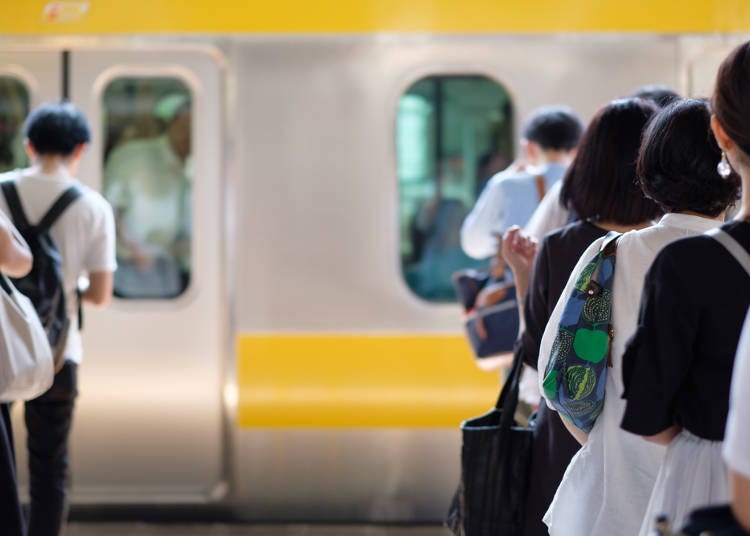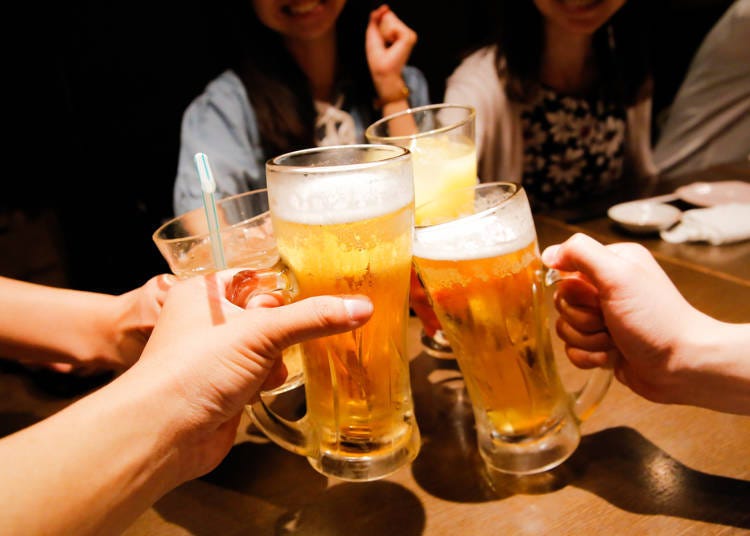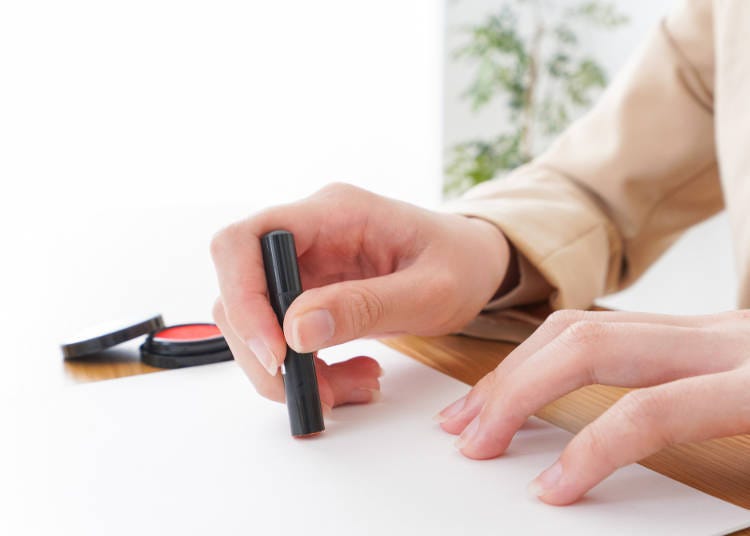
Nowadays, we often hear phrases like “work-life balance” and “work style reform.” The Japanese have a solid reputation for being hard workers, and their work ethic, business etiquette, and even the way they accomplish tasks can be quite different from workers in other countries. When working under Japanese conditions, how do non-Japanese actually feel?
I asked an American man has work experience in both the United States and Japan “What has shocked you about working in Japan?” (The following opinions are based on the interviewee’s experiences).
1. Many People Work Late! The Polite Greetings are Amazing!

“In the company I was working for, a lot of people didn't go home on time. I felt that there wasn't a regular ending time. Many people worked overtime (laughs). When it’s time, Americans will definitely go home.”
At first, I was also surprised that many of my fellow Japanese coworkers stayed late.
“And even though they were working overtime, when I left work before them I’d say ‘Excuse me for leaving before you.’ That politeness is great.”
Of course, “Excuse me for leaving before you (osakini shitsurei shimasu)” and “Thank you for your hard work (otsukaresama desu)” are standard phrases in the Japanese business world. And they aren’t necessarily apologies, even if their original nuances were. These rules may come as a shock, but even when leaving work, it’s important to pay attention to those around us.
2. Too Many Meetings! Do We All Have to Go?

“There were meetings about topics that were completely unrelated to my work, but the whole team had to attend. That felt pointless. Only the people who need to be there should attend. Those meetings were my least favorite aspect of my job.”
In his workplace, there were many of these meetings, and everyone was obliged to participate even if their responsibilities were unrelated. It may be that Japanese business style emphasizes harmony, however, in terms of work efficiency, maybe employers should make a point to eliminate useless meetings.
3. When Should I Bow!? When Should I Stop!?

“The stereotype is that Japanese are always bowing (laughs). I don't know who should stop bowing first! I was particularly surprised when we got into the elevator and bowed until the door closed.”
Japan as a nation has a worldwide reputation for politeness, and bowing is a major part of that image. On the other hand, in the United States, where bowing isn’t part of the culture, President Obama made headlines when he bowed to the Emperor during a visit to Japan.
Bowing in the business world doesn't end simultaneously, and repeated bowing is common, so I don't know when it’s supposed to end and it can be a confusing sight.
Furthermore, whether inside or outside an elevator, you keep your head down until the door closes. From the perspective of American culture in which it’s more polite to see people's eyes, it may be a strange scene. This opinion is a clear example of the differences in cultural senses of politeness.
4. The Company Pays Transportation Expenses! Having a Commuting Allowance is Wonderful!

“In Japan the company pays for your commuting expenses! That's really great. In the U.S., it’s normal to pay for your own transportation. It would be nice if they would pay for gas. Plus Tokyo has a lot of train routes and it's convenient.”
Commuting allowance is a given in Japan, and American workers may be envious. Even when commuting by car in Japan, an allowance is provided. Japanese companies should be commended for this policy!
5. After-Work Drinking Parties – Sometimes Bothersome, but Beneficial?!

“There’s a custom that Japanese people go out together after work. When drinking, a lot of people tend to open up a bit more. To be honest, company-planned drinking parties can be bothersome, but I think it's good to for coworkers to have an opportunity to go out and have a good time together.”
It’s typical for Japanese office workers to go to a bar with colleagues, and there are many drinking parties hosted by the company such as year-end parties and New Year parties, too.
Work parties aren’t the same in the United States, and attendance isn’t mandatory even if the company is hosting. Of course, there’s also the logistical problem of being unable drink after work because you need to drive home. I understand work parties can be a nuisance, but at the same time, can appreciate the opportunity to cut loose with coworkers. You should try it!
6. Japanese People Don’t Know Their Contract Details. But Sometimes It’s Good to Relax!?

"It may be because I’m a foreigner, but it’s natural to check your contract and work conditions every year. But Japanese people aren’t very familiar with the contents of their contract with the company, right? I think that’s true... But feeling that relaxed must be a relief.”
American employment contracts also differ from those in Japan in terms of seniority or evaluation based on ability and results. In Japan, contracts in many companies still tend to be based on seniority and can offer lifetime employment.
And in American companies, depending on an employee’s skills, they’ll receive appropriate pay, but if they don’t perform well, their employment could be terminated or they might not receive a bonus.
While business culture is changing in Japan, there is still a strong sense that companies will protect employees, and many people have worked for years without knowing much about their own employment contracts and evaluation standards. It is said that this kind sense of security is also a good for companies, but in a more globalized society it’s important not to leave everything to the company but to have a firm grasp on your own future.
It seems that there are many cases in which foreigners perceive a large gap between Japanese business culture and that from their homeland, but regardless of nationality, gradual change can ensure that everyone can work comfortably!
Written by Miyuki Yajima. English translation by Gabriel Wilkinson.
*Prices and options mentioned are subject to change.
*Unless stated otherwise, all prices include tax.
Popular Tours & Activitiess
Recommended places for you
-

Jukuseiniku-to Namamottsuarera Nikubaru Italian Nikutaria Sannomiya
Izakaya
Kobe, Sannomiya, Kitano
-

Kambei Sannomiyahonten
Yakiniku
Kobe, Sannomiya, Kitano
-
Appealing

Rukku and Uohei
Izakaya
Sapporo / Chitose
-

Kanzenkoshitsuyakinikutabehodai Gyugyu Paradise Sannomiya
Yakiniku
Kobe, Sannomiya, Kitano
-

ISHIDAYA Hanare
Yakiniku
Kobe, Sannomiya, Kitano
-
Goods

Yoshida Gennojo-Roho Kyoto Buddhist Altars
Gift Shops
Nijo Castle, Kyoto Imperial Palace
-

A New Tokyo Landmark Is Coming in 2026, and It's Built for Modern Travelers
by: Guest Contributor
-
Ad

Japan’s Land of Yokai Monsters and Spooky Stories! A Deep Journey to Mysterious San’in (Tottori & Shimane) for Seasoned Travelers
-
Ad

What Makes Japanese Yakiniku So Darn Good? Guide to Cuts, Heat, and Wagyu Know-How
-
Ad

The Latest Guide to "Tourism Mobility": Traveling Japan More Freely. What exactly are Japan’s version of ride-sharing and transit deserts?
-
Ad

5 Recommended Wagyu Yakiniku Restaurants in Tokyo: Signature Dishes, Premium Beef, and Secret Sauces
-

Farewell, Heavy Suitcases! Keisei Ueno’s New Service Makes Your Last Day in Tokyo Totally Hands-Free
by: Guest Contributor
-

'Japanese People Are so Different at Rush Hour!' 8 Things That Shocked Foreign Visitors
-

Todai-ji Temple: Home to the Great Buddha of Nara - And a Nose Hole That Brings You Luck!?
by: WESTPLAN
-

'Charming Chaos' - 5 Things That Surprised Foreign Visitors About Tokyo's Akihabara
by: Yuu Sato
-

Numazuko Kaisho in Ueno: Good Quality, All-You-Can-Eat Seafood for Just US$12!?
-

Are Japanese Homes Safe? 8 Things About Japanese Homes that Shocked Expats!
-

“With Strangers...?!" Why Foreigners Are Shocked by Japan’s Onsen Culture
- #best sushi japan
- #what to do in odaiba
- #what to bring to japan
- #new years in tokyo
- #best ramen japan
- #what to buy in ameyoko
- #japanese nail trends
- #things to do japan
- #onsen tattoo friendly tokyo
- #daiso
- #best coffee japan
- #best japanese soft drinks
- #best yakiniku japan
- #japanese fashion culture
- #japanese convenience store snacks












